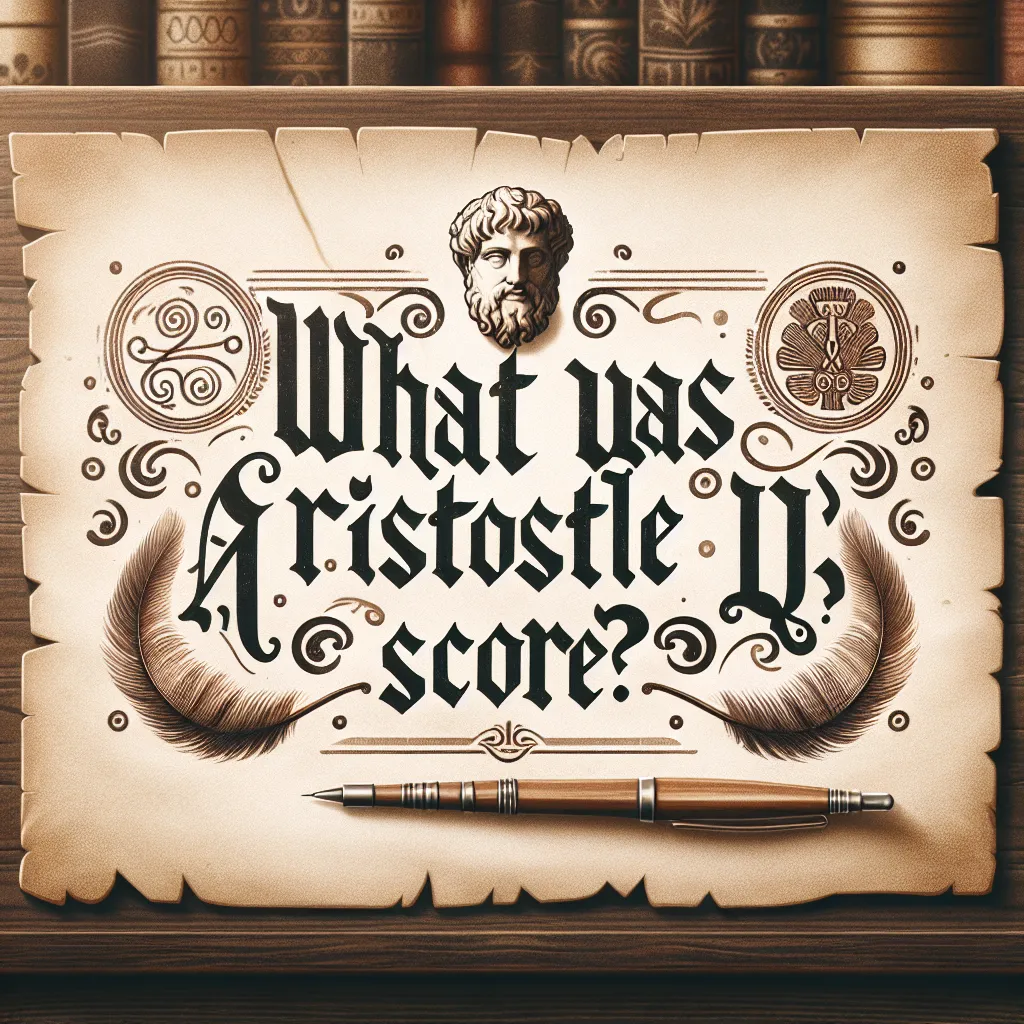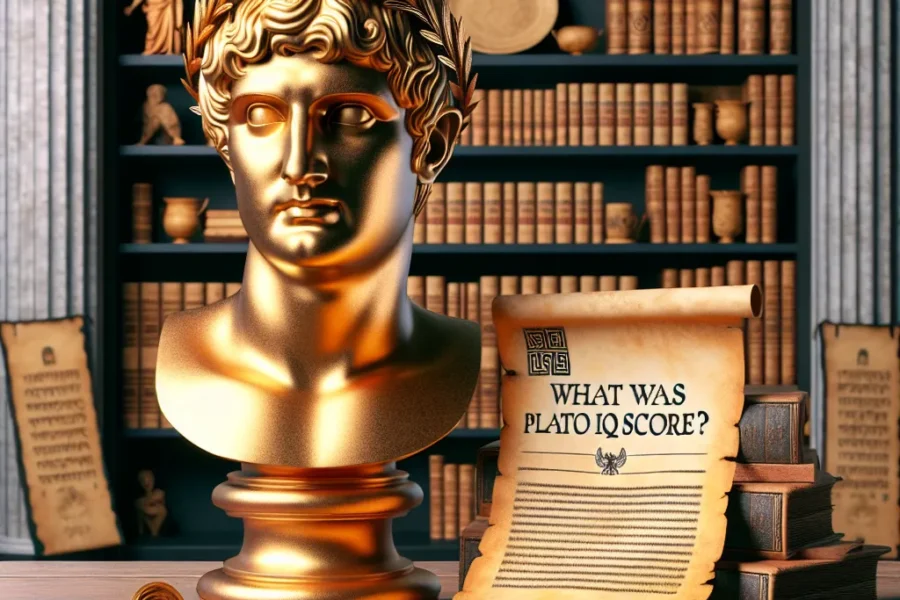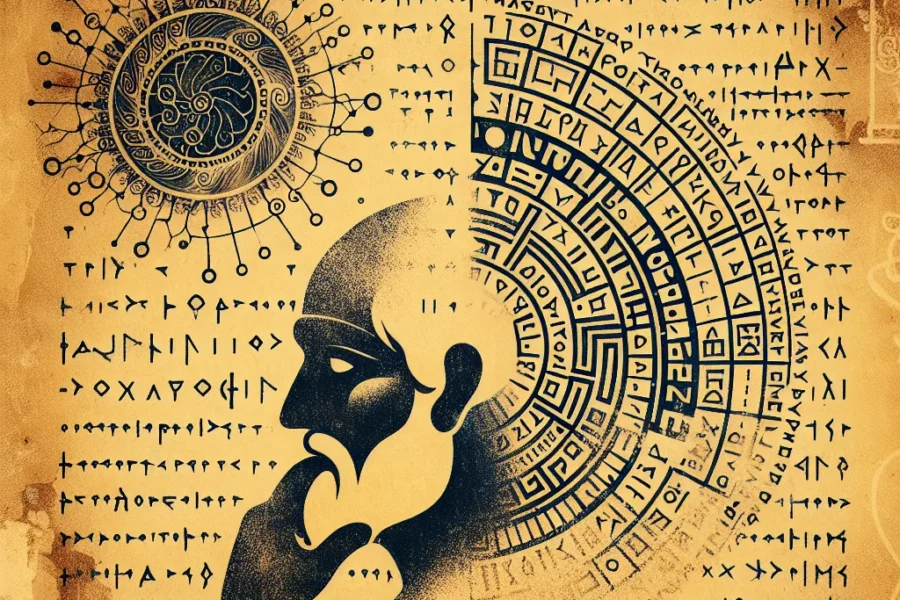Aristotle, the ancient Greek philosopher, scientist, and polymath, remains one of the most influential figures in Western thought. Born in 384 BC, his works have shaped a multitude of fields, ranging from metaphysics and ethics to biology and political theory. Given his towering intellect and the breadth of his contributions, it’s natural for contemporary thinkers to wonder: What was Aristotle’s IQ score?
If you are looking for legitimate IQ Tests which pass the entry bar for Mensa, see our IQ Tests.
The concept of an Intelligence Quotient (IQ) score did not exist in Aristotle’s time, as IQ testing was only developed in the early 20th century. Alfred Binet and Théodore Simon introduced one of the first intelligence tests in 1905. Consequently, it is fundamentally impossible to gauge Aristotle’s IQ in the contemporary sense. IQ scores are derived from standardized tests designed to measure human intelligence as categorically distinct from academic achievement or emotional intelligence. Aristotle, however, was assessed through a very different pedagogical paradigm.
Nonetheless, it’s an intriguing exercise to try to situate Aristotle’s intellectual capabilities within the framework of modern understanding. After all, his outputs are arguably prodigious even when measured by today’s standards. From his formative years studying under Plato to founding his own institution, the Lyceum, Aristotle exhibited an insatiable thirst for knowledge. He composed works encompassing an extraordinary spectrum of subjects, which today might be likened to attaining multiple PhDs in different disciplines.
### The Breadth and Depth of Aristotle’s Contributions
#### **Philosophy and Logic**
Aristotle’s contributions to philosophy are colossal. His works, such as “Nicomachean Ethics” and “Metaphysics,” are seminal texts that have provided fundamental inquiries into the nature of existence, morality, and knowledge. His method of logical analysis through syllogisms began a tradition that would lay the groundwork for modern logic. His contemplations on ethical virtues, the Golden Mean, and the nature of happiness (eudaimonia) entail a level of intellectual sophistication that would certainly necessitate a high IQ to both formulate and understand deeply.
#### **Science and Natural Philosophy**
Aristotle’s influence in the natural sciences cannot be overstated. His treatises, including “History of Animals,” “On the Parts of Animals,” and “Meteorology,” tackle biological processes, anatomy, and even weather patterns. Here, Aristotle’s skills as an empirical observer and categorizer become evident. Though some of his theories have been debunked, the methods he employed laid rudimentary principles for the scientific method. This embodies both analytical prowess and intellectual creativity, indicative of a high IQ.
#### **Politics and Social Sciences**
In “Politics,” Aristotle examines the organization of city-states, the nature of citizenship, and the role of the constitution. His concept of the “best” political order arguably led to the first systematic study of politics. Additionally, he scrutinized different forms of governance—monarchies, oligarchies, and democracies—while pondering over the justice and stability associated with each form. This multidimensional analysis necessitates a synthesized understanding of human behavior, ethical theory, and empirical observation—all of which would likely be underscored by a notably high IQ.
### Attempting to Quantify Aristotle’s Intelligence
#### **Historical Context**
The historical context within which Aristotle lived demonstrates his unparalleled intellectual upbringing and opportunities. His father, Nicomachus, was the court physician to King Amyntas of Macedon, providing him with an early education in medicine and biology. This early exposure to scientific thinking, combined with his later tutelage under Plato, fostered an environment where Aristotle’s natural intellect could flourish.
#### **Intellectual Environment**
The intellectual environment of ancient Greece was in itself a crucible for intellectual giants. The Academy under Plato provided one of the first formalized structures of higher learning, arguably equivalent to modern top-tier universities. Aristotle not only excelled in this environment but also outshined his contemporaries enough to be invited to tutor Alexander the Great—a testament to his exceptional abilities.
#### **Hypothetical IQ Estimates**
Despite the practical impossibility of obtaining an empirical IQ score for Aristotle, various scholars have speculated based on his known outputs and historical accounts of his intellect. Speculative estimates often place his IQ in the range of 180 to 200, which denotes intellectual genius. This estimation stems from his ability to not only contribute to a wide array of fields but to pioneer foundational concepts in each.
### Limitations of an IQ Framework
While it’s tempting to pigeonhole Aristotle’s extraordinary capabilities into the modern construct of an IQ score, there are significant limitations to this approach. IQ tests measure specific cognitive abilities such as logical reasoning, mathematical skills, and verbal understanding. They do not adequately capture creative insight, emotional intelligence, or the ability to synthesize knowledge across disparate fields—qualities that Aristotle exhibited in spades.
#### **Intellectual Genius Beyond IQ**
Indeed, many of Aristotle’s abilities likely fall outside the purview of traditional IQ tests. His knack for observation, categorization, and theoretical innovation indicates a form of intellectual genius that IQ scores cannot fully encapsulate. His works signify not just rote intelligence but a profound understanding and insight into the human condition and the natural world. These attributes go beyond IQ, hinting at a more holistic form of intelligence.
### Conclusion
In sum, while we can never definitively determine Aristotle’s IQ score, it’s evident that his intellect was extraordinary by any measure. Attempting to confine his genius within the bounds of an IQ score does him a disservice. His broad intellectual legacy, from groundbreaking inquiries in philosophy and science to practical examinations of political and social structures, speaks volumes about his intellectual capacities.
If you are looking for legitimate IQ Tests which pass the entry bar for Mensa, see our IQ Tests.
Aristotle’s interdisciplinary genius, pedagogical influence, and enduring legacy offer strong evidence that his intellectual capacity was exceptional. While modern IQ tests provide insights into certain aspects of intelligence, they fail to fully capture the holistic brilliance that Aristotle embodied. Thus, rather than trying to quantify his intelligence with a modern metric, we should appreciate the monumental scope and impact of his intellectual achievements.



Leave a Comment